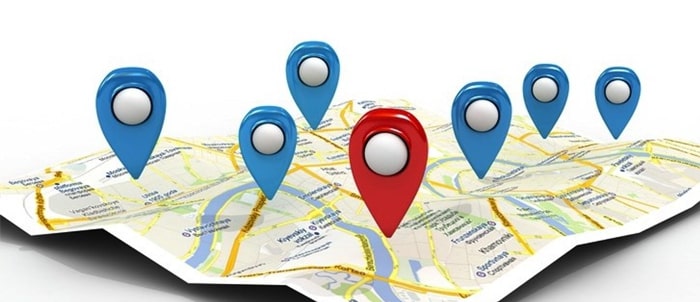Introduction to Location-Based Services-
Location-Based Services refer to a wide range of technologies and applications that leverage a user’s geographical location in order to provide value-added services to the user. With the ubiquity of GPS-enabled smartphones and advancements in geospatial technologies, Location-Based Services have revolutionized how people interact with and navigate their physical surroundings.
History and Evolution of Location-Based Services
The earliest commercial location-based service was launched in 1996 by a Swedish company called SnapTrack, which provided location data to 911 call centers to improve emergency response times. However, it was not until the mid-2000s that Location-Based Services began taking off with the emergence of smartphones. In 2007, Apple launched the iPhone with built-in GPS capabilities, paving the way for an explosion of Location-Based Services apps. Platforms like Foursquare and Google Maps quickly became popular for finding nearby places of interest and getting directions.
Use of Location-Based Services in Everyday Life
Today, Location-Based Services have thoroughly infiltrated our daily lives. Navigation apps like Waze and Google Maps help us get from point A to point B efficiently. Social media platforms integrate location data to geotag posts and connect people based on proximity. Retail apps send personalized deals and recommendations to customers within a certain radius. Fintech companies use precise location tracking to authenticate banking transactions on mobile devices. Dating apps allow proximity-based matching between potential partners in the vicinity. Even something as simple as checking into a location on Facebook has become a ubiquitous Location-Based Services behavior.
Enhancing the Delivery Experience
The e-commerce and logistics sectors have greatly benefitted from advancements in Location-Based Services and IoT technologies. Online retailers can now pinpoint customer locations for hyper-local delivery. Customers receive real-time tracking of shipment progress right to their doorstep. Crowdsourced delivery platforms harness the power of ubiquitous smartphones to crowdsource last-mile delivery. They provide delivery partners with optimal routes and waypoints to efficiently handle multiple orders simultaneously. Consumers appreciate the transparency and control that Location-Based Services affords over the delivery experience.
Emergency Response and Public Safety
Perhaps one of the most impactful applications of Location-Based Services has been in emergency response systems and public safety. Integrating location data into 911 call centers allows dispatchers to pinpoint callers and dispatch the nearest ambulances, police or fire trucks, potentially saving critical minutes. Authorities leverage location tracking of cell towers and WiFi hotspots to issue Amber alerts for missing persons investigations. Municipalities use spatial analytics of crime incident locations to deploy law enforcement resources strategically. Even individuals leverage personal safety apps that discreetly share live location with trusted friends or contacts during dangerous situations.
Opportunities in Industry and Enterprise
Beyond consumer uses, Location-Based Services also enable new location-driven opportunities for industries and businesses. Real estate companies analyze foot traffic patterns around properties to gauge demand. Energy companies optimize infrastructure maintenance using precise equipment locations. Manufacturers implement IoT-based geofencing to monitor physical assets globally. Enterprises leverage spatial data to make data-driven decisions around site selection, supply chain optimization and workforce management. Advanced Location-Based Services could even transform sectors like agriculture using precision technologies for tasks like automated pesticide spraying, crop monitoring etc.
Privacy and Security Considerations
While the benefits of Location-Based Services are enormous, their proliferation has introduced new privacy and security risks as well. Location data is highly sensitive since it can reveal personal details about an individual’s daily routines, relationships and preferences. Mobile devices constantly broadcast location data, exposing users to potential surveillance or stalking if this information falls into the wrong hands. There are also security vulnerabilities that malicious actors could exploit – like spoofing emergency alerts or hijacking navigation systems. As with any new technology, it is important for Location-Based Services providers, platforms and users to prioritize security best practices and transparency around data collection and usage. Strong regulatory frameworks will also be needed to balance innovation with privacy protections as these services continue to evolve.
Future of Location-Based Services: Beyond Navigation
Looking ahead, Location-Based Services are poised to completely transform how digital services and the physical world interface. Advancements in AR and VR technologies will overlay rich, interactive geospatial experiences atop real world locations. Indoor positioning systems will bring hyper-local Location-Based Services into our homes and offices. Integrating geospatial data with AI opens up possibilities for predictive and optimized recommendations based on users’ live contexts and environments. Autonomous vehicles will rely heavily on high-definition maps, sensor fusion and crowdsourced localization. The convergence of 5G, edge computing and the location layer will spawn entirely new location-aware applications and use cases that we have not even imagined yet. In the coming years, Location-Based Services will cease to be an auxiliary feature and truly become the primary interaction modality between people, businesses and smart infrastructures worldwide.
*Note:
1. Source: Coherent Market Insights, Public sources, Desk research
2. We have leveraged AI tools to mine information and compile it

